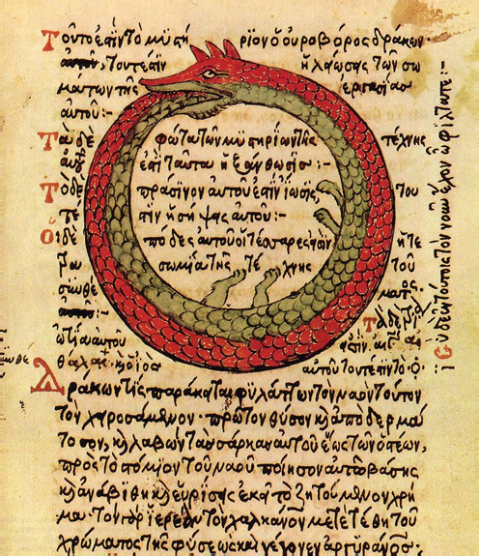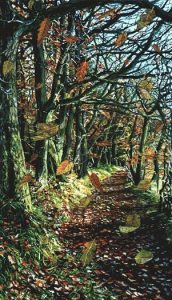°°°
Poetry, Weltschmerz, And A learning From Experience
British Library Cotton MS Nero D.IV
°°°
Having recently watched the documentary by Ken Burns and Lynn Novick about the Vietnam war it seemed relevant to ask questions such as what was the horror, the suffering, the deaths, the grief of relatives of those US servicemen killed, and the trauma of so many Veterans, for; and decades on have we humans en masse learned anything?
British Library Cotton MS Nero D.IV

A reprint of an autobiographical missive from 2010; lost, then forgotten, then over a decade later found again courtesy of a copy sent by a friend. I have slightly amended one of the footnotes.
°°°
A pdf archive of my new website, as of March 2024, is available at https://davidmyatt.wordpress.com/wp-content/uploads/2024/03/website-march-24.pdf
°°°°°°
After nearly twenty years with the same provider I have taken down my davidmyatt dot info website due to a change in their polices: to replace static sites like mine, with its handcrafted html, with ‘dynamic’ sites using JavaScript and php with a decorative ‘website builder’.
The new (advertisement free) website is at https://dwmyatt.net/2024/03/01/a-question-of-pathei-mathos/ and consists of a static main page with links to pdf versions of various writings.°°°
NASA:
Earth and Moon as seen from the departing Voyager 1 interplanetary spacecraft
°°°°°°

§ Aeschylus, A Self-Taught Hymn
§ A Slowful Learning, Perhaps
§ Such A Failure Of Understanding
§ A Perplexing Failure To Understand
§ One Hot Sunny Day, Almost Mid-July
Image Credit: Folio 196, Codex Parisinus Graecus 2327
°°°
It all seems so very sad. To watch the same mistakes being made day upon day, year after year, decade after decades. As if the lessons of our thousand of years old human culture of pathei-mathos have not been learned or not been presented or more often that so many of us are somehow in physis, in our human nature, innately immune to such a learning. For these lessons are the lessons of fairness; of empathy, of tolerance, and of compassion, voiced for example thousands of years ago in The Beatitudes.
British Library Cotton MS Nero D.IV
°°°
Weltschmerz And The Conflict In Gaza
Image Credit:
To The Distant One, A Painting by Richard Moult
°°°
°°°
Early Spring, 2014. In the garden, the tall, old, Cherry tree is once again in bloom: from bursting buds to a dome of white within three days. Such a reminder, each Spring, of how so very numinous so many aspects of Nature can be when we, relucting, rise above such selfish self-absorption as keeps us beasts within. Such beauty, harming none. Such beauty to pause my life at least for a moment: one moment of innarrable sadness brought forth by so many aspects of my past.
A Vagabond In Exile From The Gods
°°°
Précis Of The Way Of Pathei-Mathos
°°°
What I have previously described as the ‘philosophy of pathei-mathos’ and the ‘way of pathei-mathos’ is simply my own weltanschauung, a weltanschauung developed over some years as a result of my own pathei-mathos. Thus, and despite whatever veracity it may or may not possess, it is only the personal insight of one very fallible individual, a fallibility proven by my decades of selfishness and by my decades of reprehensible extremism both political and religious. Furthermore, and according to my admittedly limited understanding and limited knowledge, this philosophy does not – in essence – express anything new. For I feel (and I use the word ‘feel’ intentionally) that I have only re-expressed what so many others, over millennia, have expressed as result of (i) their own pathei-mathos and/or (ii) their experiences/insights and/or (iii) their particular philosophical musings.
°°°
Related:
° The Numinous Way Of Pathei-Mathos
(Seventh Edition 2022)
° Religion, Empathy, and Pathei-Mathos
°°°
Image Credit:
NASA:
Earth and Moon as seen from the departing Voyager 1 interplanetary spacecraft
°°°°°°






Have All Religions Failed?
0
°°°
While listening to JS Bach’s numinous Ascension Oratorio, in a performance conducted by John Eliot Gardiner, I began to wonder if Christianity, and all religions world-wide, had failed to change our basal human nature en masse to the extent that we humans no longer sallied forth to kill and destroy on behalf of some State entity or on behalf of some ideology or on behalf of some interpretation of a religion or because we as individuals had rejected or were not influenced by or had never known or had misinterpreted the message of such religions.
From the south of Madagascar to the inner city problems and violence in America and Europe to the current conflict in Gaza (and its consequences) to the war in Ukraine to the Rohingya in Burma and the violence and killing elsewhere, we appear to be a savage species untamed by the message of peace and non-violence which the major world religions all seemed to be trying to teach us, with for instance some Buddhists in Burma now apparently justifying the persecution of and violence against the Rohingya.
For over a decade I perhaps egoistically have believed that my own decades-long violent, suffering-causing, extremist life and my ultimate rejection of it through my weltanschauungen of pathei-mathos, might engender in some individuals an understanding of our human nature and the need for compassion, empathy, and honour. But it and so many so very many such attempts – from the poetry of TS Eliot to With The Old Breed: At Peleliu and Okinawa by Eugene Sledge to One Day in the Life of Ivan Denisovich by Aleksandr Solzhenitsyn – seem to have made no appreciative difference whatsoever.
I have to admit I have no solution to how to now change, reform, our basal human nature so that we now no longer sally forth en masse or individually to kill and/or cause suffering to others. For it does not appear to be just a matter, as I once perhaps naively believed, of exegesis and denotata.
David Myatt
April 14th 2024
British Library Cotton MS Nero D.IV
Filed in Christianity, David Myatt, David Myatt: Pathei Mathos, David Myatt: Personal Comments, DW Myatt, Jesus Of Nazareth, Novum Testamentum Graece, Pathei Mathos, Philosophy of Pathei-Mathos, Philosophy of The Numinous Way
Tags: Culture of Pathei-Mathos, David Myatt, DW Myatt, Novum Testamentum Graece, Philosophy of Pathei-Mathos, The Culture of Pathei-Mathos, The Numinous Way, Way of Pathei-Mathos